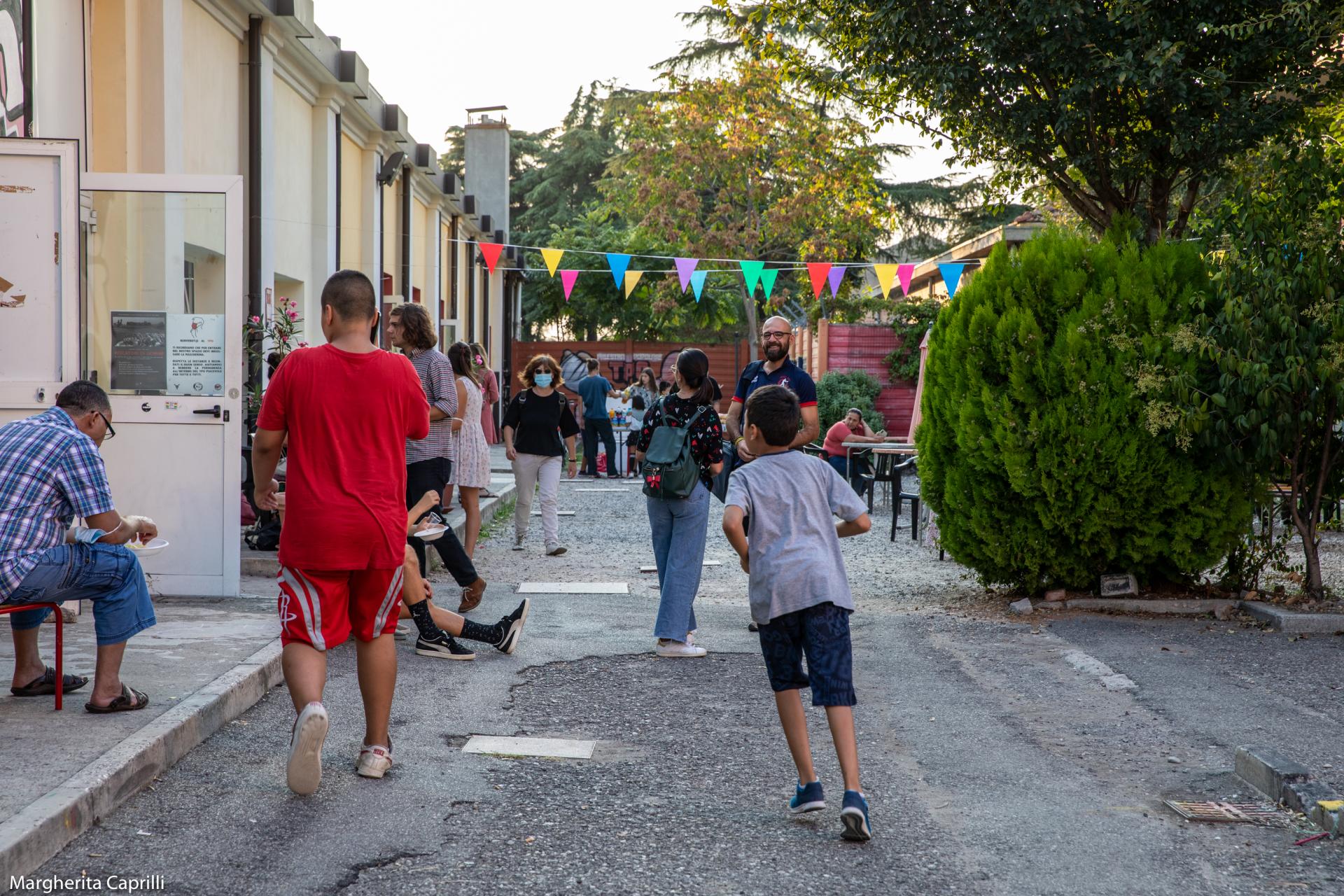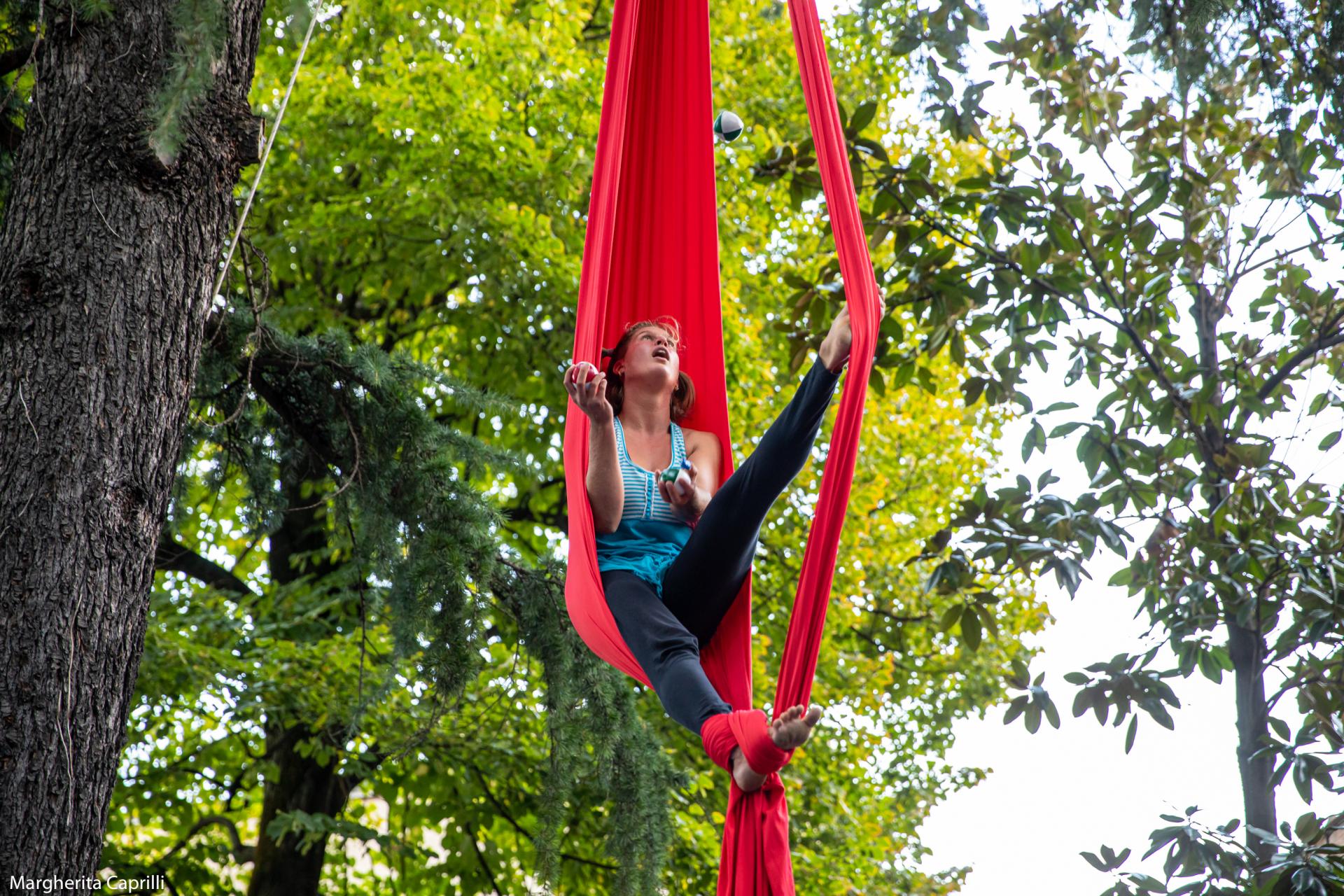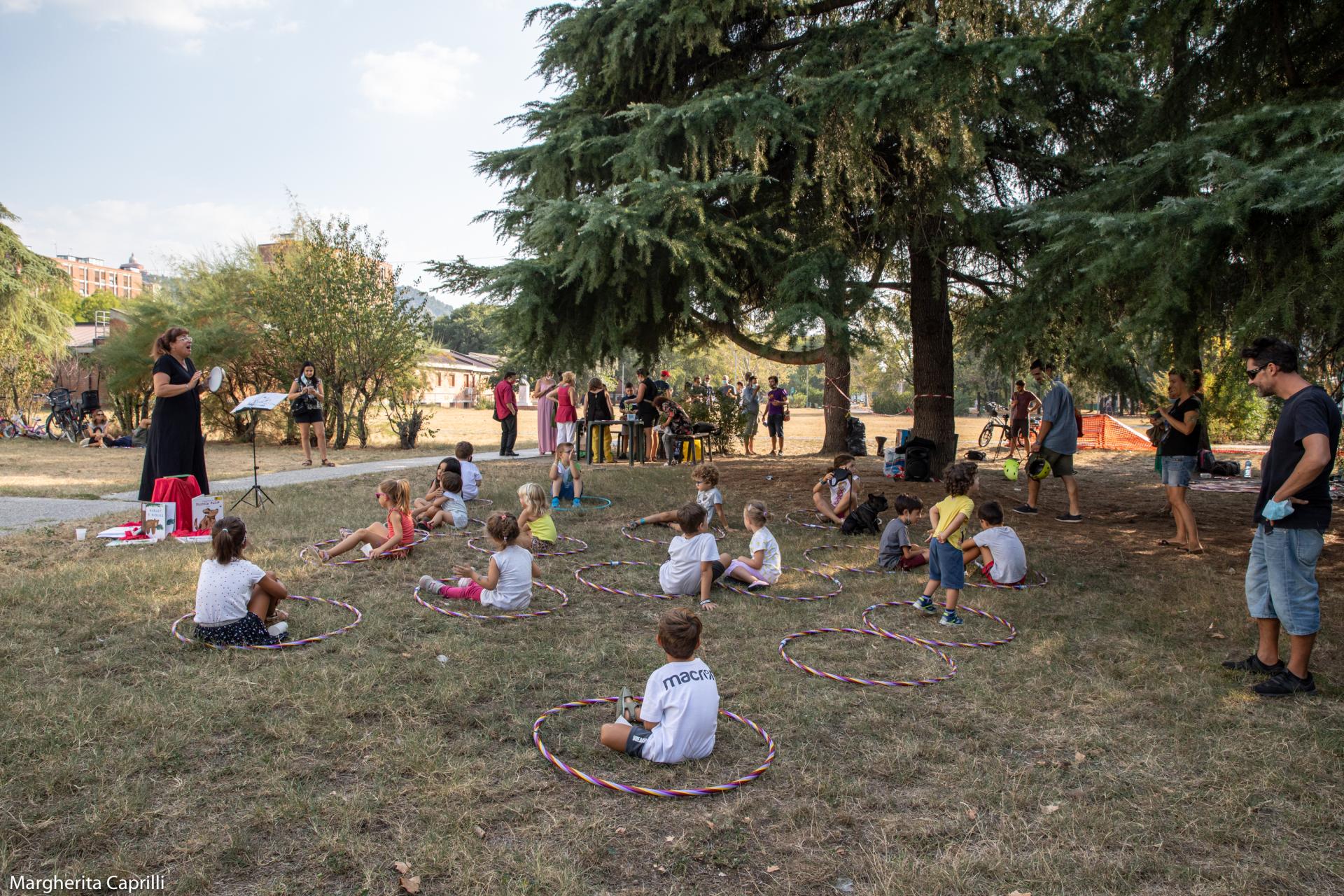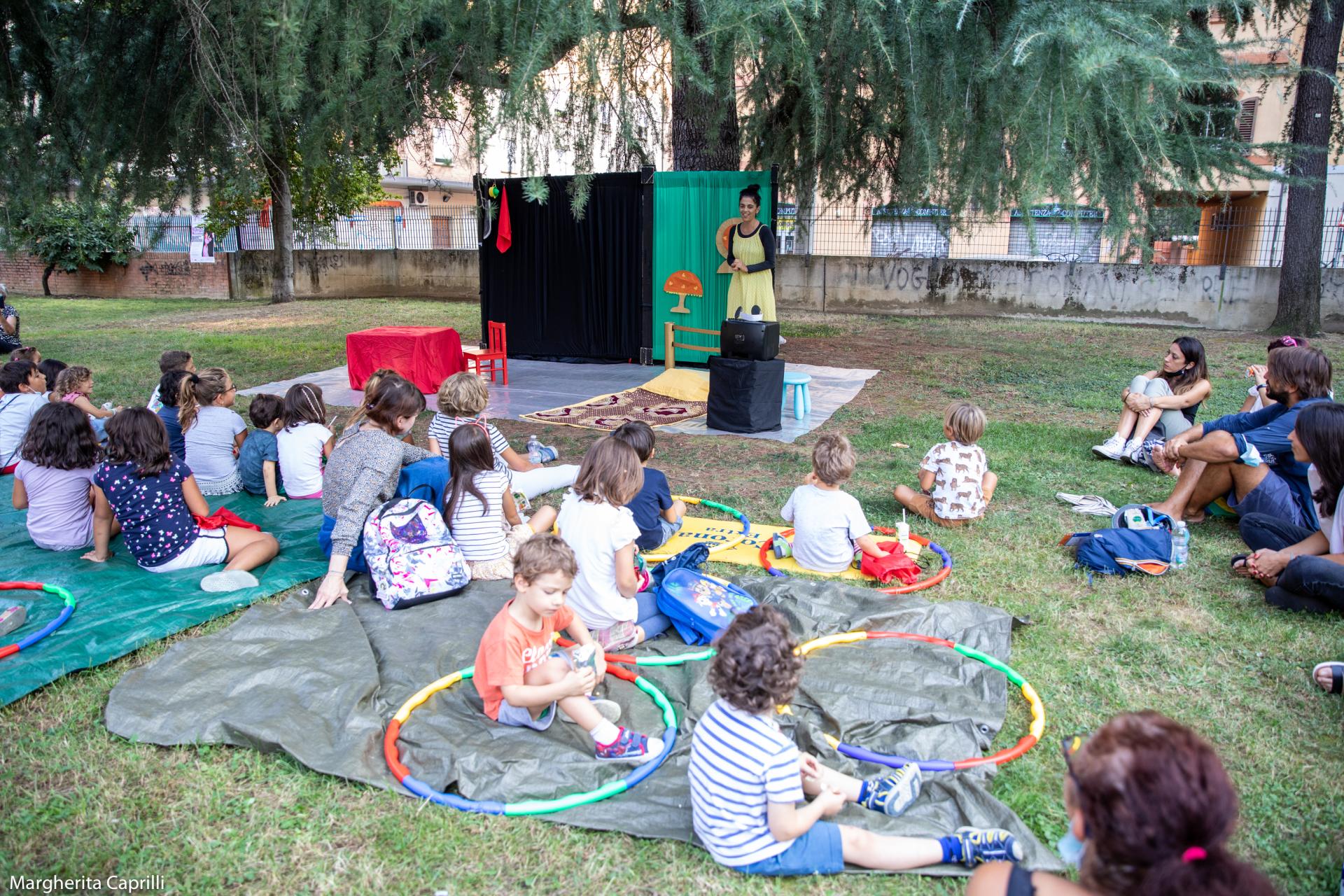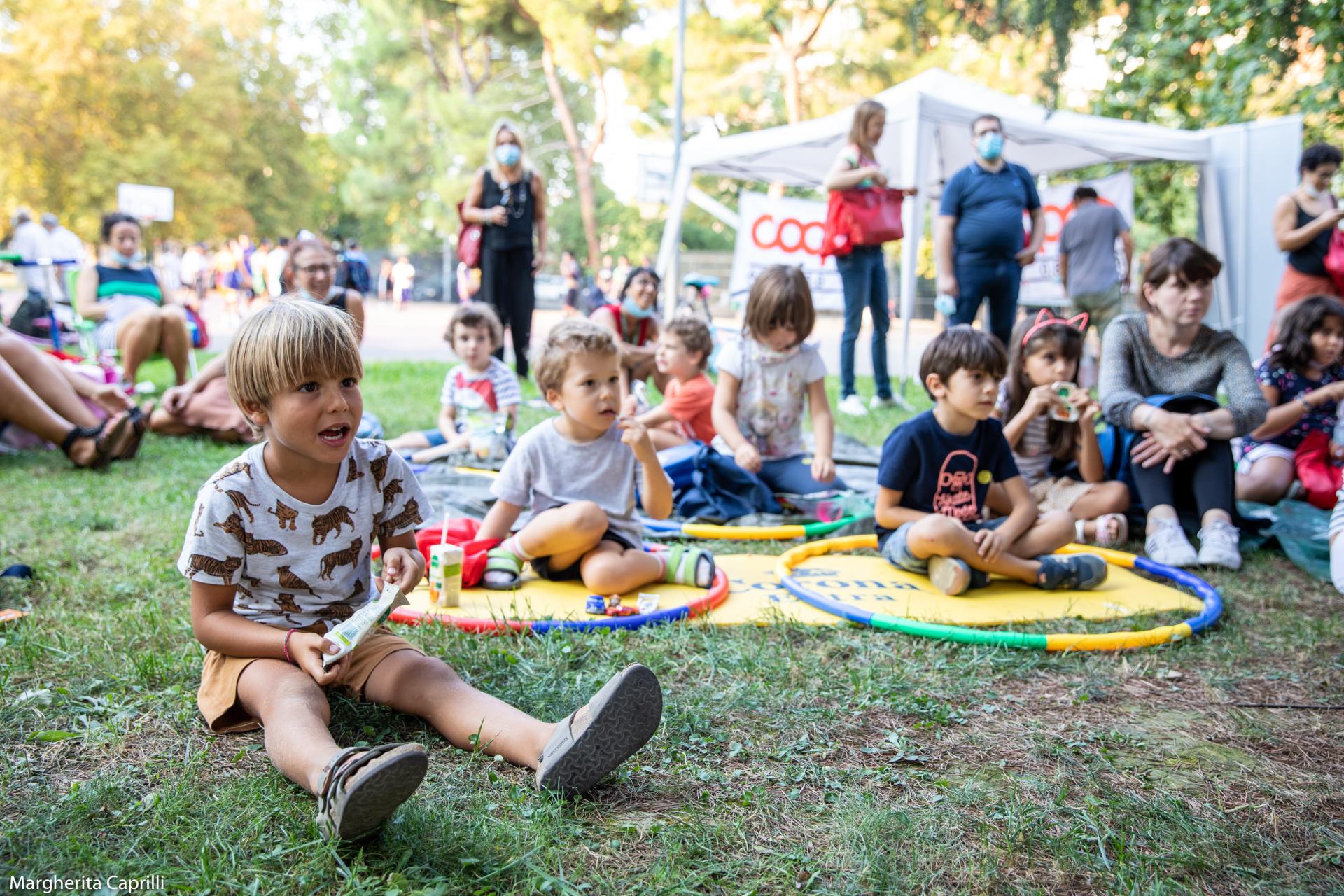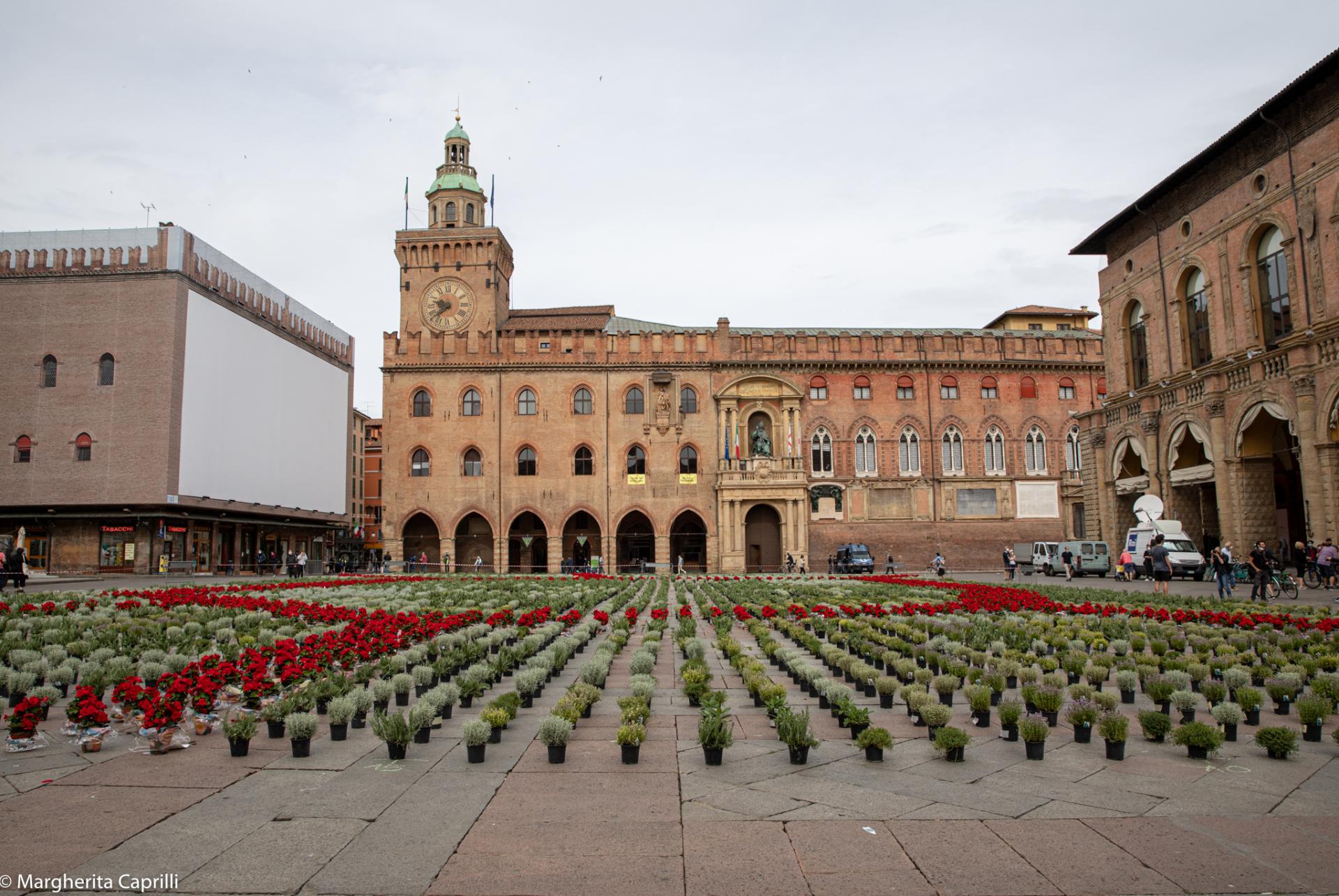Piccoli Teatri di Quartieri
Basic information
Project Title
Full project title
Category
Project Description
The lack of provision of recreational and cultural services for children and families due to the pandemic, together with citizens’ desire to meet again in safety by re-inhabiting the usual places of socialization, has been identified as one of the most compelling challenges to be faced by the city of Bologna. Having regard to these needs, the Foundation launched a call for proposals to promote and support the implementation of cultural initiatives throughout the overall metropolitan area.
Project Region
EU Programme or fund
Description of the project
Summary
On May 16, 2020, the Foundation for Urban Innovation, together with 6000 sardine Association promoted the initiative 6,000 seedlings - photosynthesis for culture: a civic crowdfunding activity aimed at collecting resources to support widespread cultural initiatives to complement the summer program of activities of Bologna Estate annual public call for proposals.
The great success of this initiative was coupled with the results of an ongoing research work (Ri-innovare la città), developed by the Foundation since March 2020, aimed at collecting data on citizens’ emerging needs due to the pandemic limitations and related lack of services within the urban area.
Having regard to these results and thanks to an additional contribution of the Department of Culture of the Municipality of Bologna, the Foundation launched the call for proposals Piccoli Teatri di Quartiere. This public notice procedure aimed at collecting cultural animation and recreational services project proposals addressed to families and children, to be implemented during the summer period and within citizens’ everyday-life spaces of interaction.
The 70 proposals received were assessed by a panel of representatives of both the Foundation and the Municipality of Bologna (Department of Culture and Third Sector and Active Citizenship Office) on the basis of the following criteria: responsiveness to community needs, suitability of venues, the potential for residents’ involvement, long-term programming, management and consistency of Covid regulations. Following the announcement of the results, applicants presented their projects during a public event open to citizenship. Grants of up to 5,000 EUR were awarded to support the implementation of the proposals.
The activities ended by September 30, 2020. All the proposing organizations correctly delivered the required reporting material and the resources allocated to each project were liquidated in compliance with the terms of the call for proposals.
Key objectives for sustainability
To promote through cultural initiatives more sustainable mobility habits and to raise the awareness of both the communities and the involved organizations concerning environmental impact issues, two criteria for the evaluation of proposals were included in the call with this regard.
The actuation of a temporary pedestrianization of the locations dedicated to the performances and surroundings was set as a requirement for project proposals to both enhance the accessibility to the initiatives and encourage more sustainable mobility within the neighborhoods.
On one hand, the proposing organizations were valued for a maximum of 10 points, over the total score of 100, on their ability to foresee and design the pedestrianization of urban areas in collaboration with the district representatives. On the other hand, by enhancing neighborhood initiative, the Foundation aimed at reducing the need of families to move towards the city center supporting an increased work-life balance as well as limiting car journeys. The activities were planned to be located close to inhabitants’ homes or otherwise easily accessible on foot or by bicycle.
Moreover, the Commission rated the care taken to improve the environmental sustainability of the proposed initiatives as of special interest during the evaluation process, as stated within the call terms. Therefore, particular attention was devoted to the projects designing ways to use materials with a low environmental impact and effectively planning both the separate collection of waste and the promotion of sustainable means of mobility to reach event venues.
For example, the winning project Made in Manifattura asked for participants to gather before the performance to clean up the public garden together, training children in this act of daily care of public and shared space.
Key objectives for aesthetics and quality
Aesthetics and quality of experience have been enhanced both through the revitalization of peripheral areas and the initiatives projected by the selected cultural organizations.
The willingness of expanding the outreach of the municipal call Bologna Estate coincided with the aim of revitalizing and enhancing the quality of experience of common spaces over the whole metropolitan area of Bologna. Piccoli Teatri di Quartiere (Neighborhood Theatres) was in fact conceived as a possibility for people living in challenged suburbs to animate the public spaces close to their homes viewing them in a new light.
In order to ensure an unprecedented perception of everyday spaces, the call foresaw a strong co-participation of the neighborhoods’ intermediate bodies in the development and implementation of the project proposals. The project applicants were required to carefully select the locations, not only by checking their availability in advance, but also and above all by assessing the social impact this transformation could contribute to, together with the districts’ representatives.
Through the selected cultural initiatives, courtyards, housing estates, parishes, and markets were given back to the community of residents after the long period of closure and disuse due to the health emergency. But above all, this project provided recreational and cultural services where these activities are normally not implemented due to lack of funding and coordination both enhancing the attractiveness of these areas and giving children the chance to appreciate the value of these places by making them their own.
Key objectives for inclusion
Piccoli Teatri di Quartiere was projected with the objective of developing widespread cultural initiatives over the six districts of Bologna to guarantee the provision of recreational services to each community of inhabitants and expand the outreach of the Municipal call for proposals Bologna Estate to challenged areas of the city.
Inclusion was aimed and achieved under two different perspectives.
On one hand, the support provided by the Foundation for Urban Innovation to the proposing organizations, both in monetary and managerial terms, was thought to facilitate the participation in the calendar of city events of smaller local associations, who usually have a limited capacity for project implementation.
On the other, particular attention during the selection process was addressed to ensure equal and wider dissemination of the activities within the metropolitan area to overcome segregation. At least two projects were chosen for each one of the six urban districts.
Inclusion was also valued within the call for proposal. The potential for the audience and residents’ engagement, as well as the ability to actively involve and integrate different stakeholders and communities within the project proposal was rated for a maximum of 20 points over 100. The specific needs of each neighborhood had to be addressed through the initiatives (e.g. organizing a trip to the seaside where many had never seen it before).
Furthermore, the proximity to homes and the fact that events were free of charge made it also possible to involve those who usually wouldn’t have had the possibility to access these services if being located elsewhere. Particular attention was also paid to families in extreme economic and social difficulties thanks to the project proposed by the mutual aid brigades Solidarity at Home, which ensured the delivery of basic means necessary for families and children to participate to the planned recreational activities.
Results in relation to category
Thanks to the crowdfunding initiative and an additional contribution of the Municipality of Bologna, the Foundation for Urban Innovation was able to devolve 60.000 EUR to widespread cultural initiatives within the urban neighborhoods of the city of Bologna by launching a public call for proposal. This resulted in the selection of 17 project proposals among the 70 applications collected.
Despite the pandemic and in full compliance with the current regulations, between July and September 2020, 150 events were set up, involving over 2944 participants.
The results achieved can be considered from three different points of view.
Small/medium local actors were facilitated in participating in the annual call Bologna Estate thanks to the joint action of the municipal cultural sector and the Foundation for Urban Innovation. Nineteen cultural associations, private social institutions, and third sector actors were involved and supported through the implementation, administration, and reporting of their projects both by the districts and the Foundation's representatives for each neighborhood. These organizations were thus enabled to increase their visibility within the city space and among local institutions as well as to build new connections with districts intermediate bodies and inhabitants.
Families were provided with innovative and free cultural initiatives as well as with the possibility of meeting again in safety within their districts through community-building activities. For some of them, this initiative has been the first opportunity to engage in cultural activities and experience collective leisure moments outside the school setting.
Peripheral public spaces such as courtyards, housing estates, parishes, and markets were revitalized through cultural actions to strengthen the shared sense of ownership on the part of the community and increase their attractiveness to non-residents.
How Citizens benefit
The involvement of civil society has been the starting point for both the design and implementation of the project for two reasons.
The urgency to organize recreational and cultural activities to meet families’ needs, in spite of the lack of services provided due to the pandemic, was brought to light by the citizens themselves by participating in the previously organized project Ri-innovare la città - observatory.
Among other territorial research activities, the Foundation collected relevant information on citizens’ needs through over 1500 responses to a questionnaire for children and families, as well as from 300 interviews to intermediate bodies, associations, and networks operating in the neighborhoods. Thus, through an in-depth analysis of both opportunities and risks derived by the economic and social impact of the pandemic, the Foundation has been working on prioritizing public funds by cooperating with the Municipality of Bologna to plan a rapid deployment of solutions to citizens’ needs. To ensure the integration and impact of these results within the initiatives, the call for proposals Piccoli Teatri di Quartiere included selection criteria specifically devoted to value the ability of the proposing organizations to meet citizens’ needs. This was rated 15 points over 100 by the Commission during the selection process.
Moreover, citizens’ participation in the crowdfunding activity 6000 seedlings - Photosynthesis for culture allowed the concrete realization of the project providing the Foundation with the necessary funds to activate the call for proposal. Over 30.000 EUR were raised thanks to this initiative, highlighting civil society’s true interest in supporting cultural initiatives for all. Therefore, the engaging actions conducted before the actual implementation of the project allowed and defined the project Piccoli Teatri di Quartiere itself.
Innovative character
Piccoli Teatri di Quartiere's innovative character can be observed under three perspectives: the nature of civil society involvement, the decentralized network coordination of actions, the synergy work with the Municipality's Culture Department to activate quick responses to territorial shortcomings.
The funding of cultural activities through a civic crowdfunding initiative has been a new addition to the usual means of citizenship participation within the metropolitan area. The peculiarity of this action lies in the unity of purpose and successful alliance between the Municipality, the Foundation for Urban Innovation, and the independent Association 6000 Sardine; but also in the fascinating street action that was organized to promote the 48hour-long crowdfunding campaign. 6000 aromatic seedlings covered the entire square, as a symbol of rebirth and a new start for a more inclusive and accessible cultural sector.
The coordination of the proposing organizations, the intermediate bodies within the neighborhood, and the Municipality department responsible for Bologna Estate's annual calendar of events has been in charge of the Foundation. Involving the district offices in managing the logistics of locations and dealing with administrative matters has been an innovative way to handle and implement such a widespread action. In this sense, Piccoli Teatri di Quartiere has also represented a great opportunity for both the district representatives and the local cultural associations to meet and discuss the potentiality and the relaunching of urban public spaces through the arts.
Moreover, the close cooperation with the Department of Culture has enabled both the smaller local associations to challenge themselves in participating in the summer calendar of events and to increase these cultural initiatives’ outreach. This consolidation of relations has laid the foundations for the future development of neighborhood activities, increasing awareness on the value of proximity.

